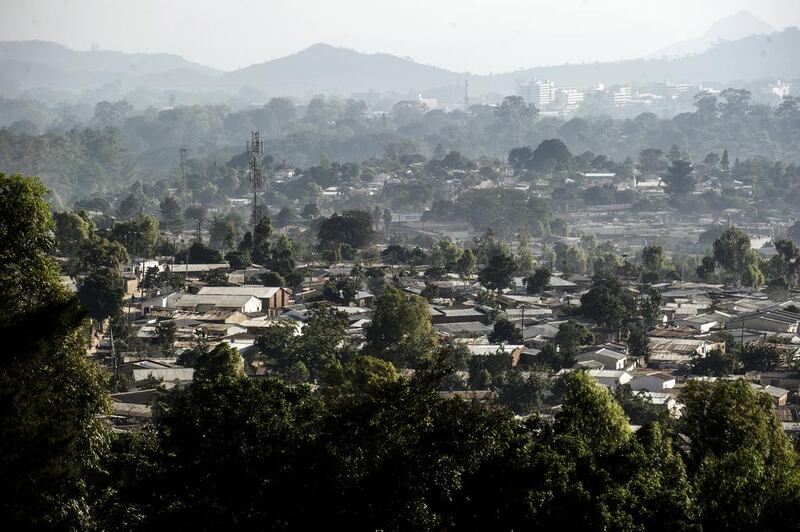CAPE TOWN // Malawi has long been a backwater in a region best known for safari parks and resource extraction.
Now things are looking up for the country of 16 million people.
A variety of minerals and even gas may be available in economically exploitable quantities. Running close to the length of the country is Lake Malawi, a body of fresh water nearly 600 kilometres long. Indications are that beneath its placid waters lies gas.
Among those interested in finding it is Rak Gas, a UAE operator controlled by Ras Al Khaimah, and tasked with supplying the emirate with a consistent and secure supply of energy. It is also serves to generate growth and revenues for its government. Rak Gas has in recent years begun early stage exploring in various sub-Saharan states.
These include Somalia, offshore Zanzibar and Lake Malawi. In Malawi Rak Gas has just conducted environmental impact assessments and what is termed full tensor gravity gradiometry surveys that are a precursor to exploration drilling.
Gravity gradiometry is used by hydrocarbon and mineral prospectors to measure the density of the subsurface, effectively the rate of change of rock properties. From this information it is possible to build a picture of subsurface anomalies which can then be used to more accurately target oil, gas and mineral deposits.
And oil may be available – an Australian company poking around under the lake in the 1980s said it found signs that there could be as much as four billion barrels to be had. Getting it to the surface, though, will take some doing as some of the oil blocks overlap the Lake Malawi National Park, a World Heritage Site.
According to local press reports, Lake Malawi is divided into six segments for oil and gas exploration with block 1 awarded to Sac Oil of South Africa in 2012. Blocks 2 and 3 were awarded to the British firm Surestream Petroleum in 2011, but in 2013 Egypt’s El Hamra Oil acquired a 51 per cent stake in the Surestream licences. Blocks 4 and 5 were awarded to Rak Gas in July 2013 and the sixth block went to Ghana’s Pacific Oil.
The Malawi government of Peter Mutharika, who was voted into power during a fiercely contested election in 2014, will have to work hard convincing environmentalists that exploiting the lake can be done safely. He will also have to demonstrate to a wary public that the proceeds of oil or gas production can be used to further the interests of the country as a whole.
There is also a disagreement with Tanzania, which shares the north-east shore of the lake, over which the boundary between the two countries lies. Tanzania is claiming half the lake is in its territory, which Malawi disputes.
Mr Mutharika has strong incentives to solve these issues. Malawi is one of the world’s poorest countries, heavily dependent on peasant farming. According to the UN’s International Fund for Agricultural Development more than half the population is classified as rural poor. About 30 per cent of its GDP and 85 per cent of export revenues come from agricultural activity. The country itself has a GDP of just US$S6.5 billion.
It is also struggling at the moment with drought. Government research showed that 6.5 million people, nearly half of Malawi’s population, will require food assistance until the next harvest season.
Malawi therefore needs every extra dollar it can get. Which is why Mr Mutharika wants to press ahead with energy extraction, even though the price of oil and gas is not particularly buoyant at this time.
business@thenational.ae
Follow The National's Business section on Twitter





